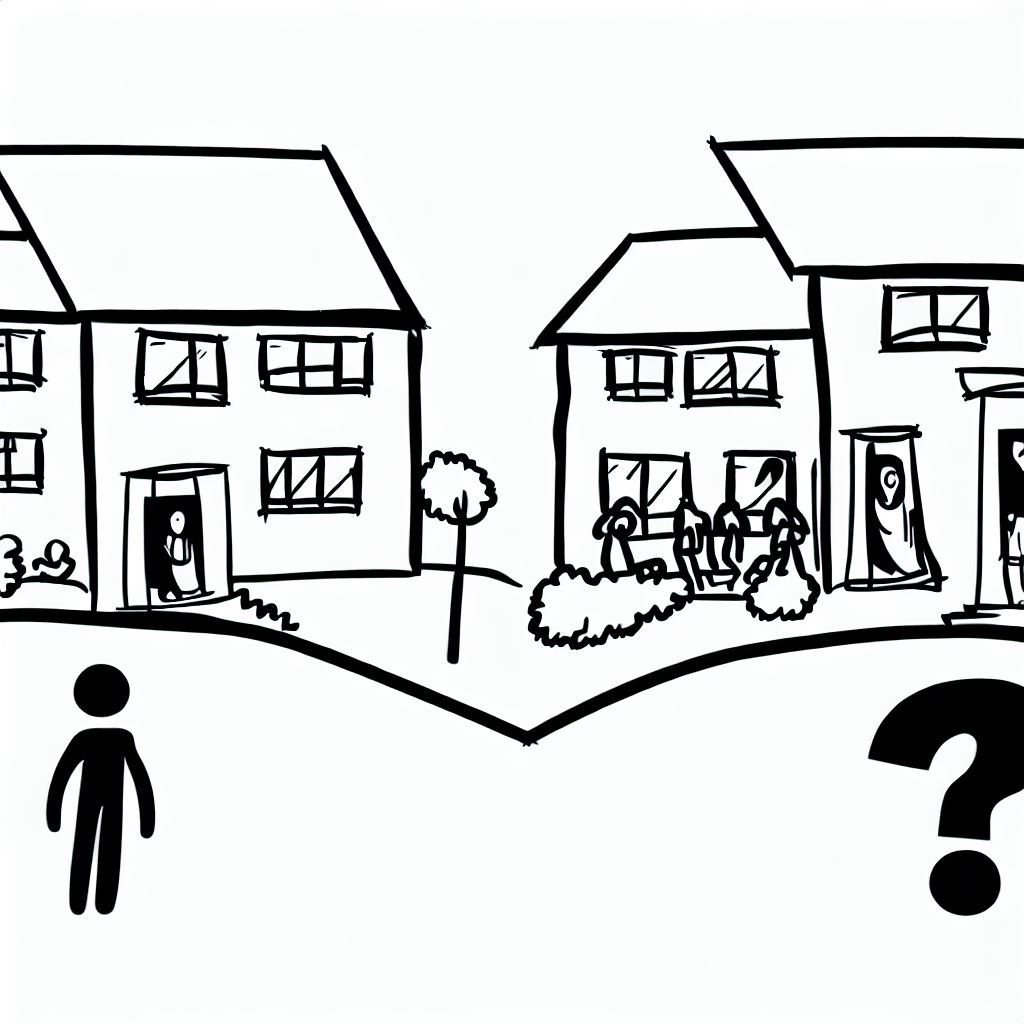When deciding between selling or renting your current home while purchasing a new one, carefully consider factors like immediate profit, property appreciation, landlord responsibilities, and transaction costs. Seek professional advice to make an informed choice aligned with your goals and capabilities.
___________________________________________
“We are currently in the process of buying a new home and wondering if should we sell our current house or rent it out?
What are the pros and cons of each?”
(Original question on Reddit)
___________________________________________
Deciding whether to sell or rent out your current home when buying a new one is a significant financial choice. Here are some pros and cons to consider for each option:
Selling your current house
Pros of selling your house
- Immediate Profit: After selling your home, you’ll receive a lump sum from the sale, which can be used for a down payment on your new home. This lumpsum may even potentially buy your new home completely, so you won’t need to worry about mortgage payments.
- No Landlord Obligations: You won’t need to handle tenant issues, property maintenance, or repairs. This means you won’t have to bear the responsibilities of being a landlord, taking weight off your shoulders so you can put your energy and time into other parts of your life.
- No risk of negative cashflow: There is always the possibility that the mortgage payments on your old home exceed the net rent coming in, resulting in negative cash flow. Selling your house removes this risk.
Cons of selling your house
- May miss out on potential gains: Selling your home may mean missing out on potential future increases in its value. Real estate has shown in the past to appreciate over time, and parting with your property could mean forgoing these financial gains. This is especially relevant in areas with steady or rapid property value growth. Consider the long-term financial implications of selling against potential future gains when deciding.
- Transaction Costs: Selling a home involves various costs like agent commissions and fees, closing costs, and potential repairs or renovations to prepare the house for sale.
Renting out your current house
Pros of renting out the house
- Rental Income: You can generate a steady income stream from tenants, which can help cover your new home’s mortgage or other expenses. This new stream of income can help you save up money for other financial goals you have in life as well.
- Property Appreciation: You retain property ownership and can benefit from its potential appreciation over time. So, in the future, if the price rises to a desirable amount, you can decide to sell the property and gain a larger property.
- Flexibility: You can return to your old home in the future if your circumstances change. This flexibility can be particularly advantageous if, for example, you need to move back due to work opportunities, family considerations, or personal preferences.
Cons of renting out the house
- Landlord Responsibilities: Being a landlord entails managing tenants, property maintenance, and addressing issues that arise. This can be stressful as it will require time and effort, which can eat up your time which could have been spent elsewhere. Additionally, contracting someone to manage your residential property on your behalf can be expensive if you don’t want to deal with all the responsibilities yourself.
- Vacancies and Repairs: Renting out your property may lead to vacancy periods and the need to budget for maintenance and repairs. These factors can affect your rental income and require financial planning and property management.
- Tenant Issues: Dealing with problematic tenants can be stressful and time-consuming. The issues can vary from late rent payments and property damage to disputes over lease terms and eviction proceedings.
- Financing Challenges: If you need a mortgage for your new home, securing one can be more challenging if you have an existing mortgage on your old home.
Ultimately, the decision depends on your financial situation, long-term goals, and willingness to take on landlord responsibilities. Consider factors like your cash flow needs, the local rental market, your emotional attachment to the property, and your ability to manage a rental property effectively. It’s often a good idea to consult with a financial advisor or real estate professional to make an informed choice that aligns with your unique circumstances.
Renting out the property offers potential long-term advantages, such as additional income and the prospect of selling at an appreciated value down the line. Nevertheless, it does entail the responsibilities of being a landlord, which includes addressing potential tenant issues. With selling a home, you can get your lumpsum immediately and don’t need to worry about extra responsibilities and unexpected expenses with renting out your home. Weighing these factors carefully will help you determine the decision that best aligns with your goals and capabilities.
Hope this helps.
Regards, Clive Fernandes (Financial Adviser)
Director – National Capital
Disclosure: I am the director of National Capital, a KiwiSaver advice firm. The information in this post is only general in nature and is not personalised financial advice. Please contact us if you want financial advice.
